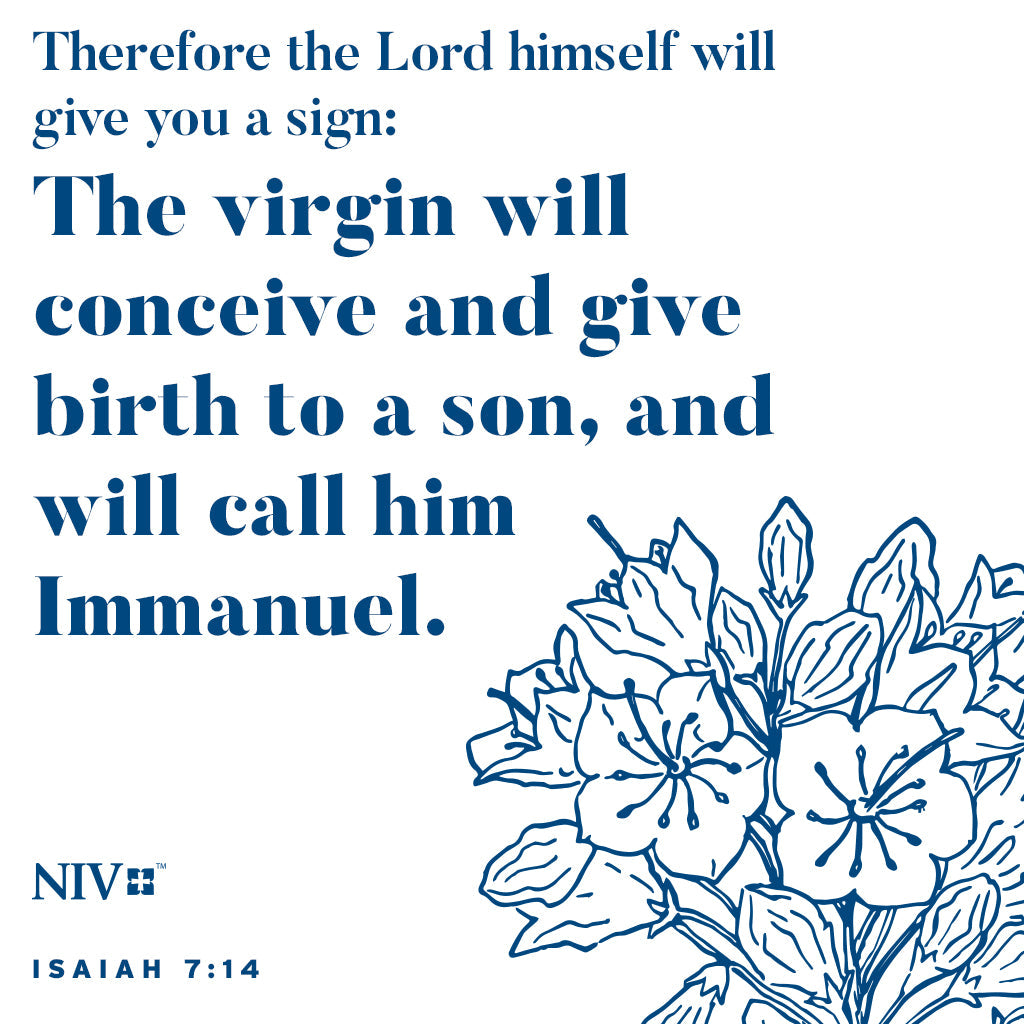Bible Study Reading: Isaiah 7:1-17; Isaiah 9:1-7
Once a year the Christmas season strikes both the sacred and the secular spheres of life with sledgehammer force. Suddenly Jesus Christ is everywhere. For approximately one month His presence is inescapable. You may accept Him or reject Him, affirm Him or deny Him, but you cannot ignore Him. Of course, He is proclaimed in speech, song and symbol in all the Christian churches. But He rides every red-nosed reindeer, lurks behind every new doll, resonates in the most desacralized “season’s greetings.” Remotely or proximately, He is toasted in every cup of Christmas cheer. Each sprig of holly is a hint of His holiness, each cluster of mistletoe a sign He is here.
For those who claim His name, Christmas heralds this luminous truth:
The God of Jesus Christ is our absolute future.
Such is the deeply hopeful character of this sacred season. By God’s free doing in Bethlehem, nothing can separate us from the love of God in Christ Jesus. Light, life and love are on our side.
The Christmas story was written in the light of post-paschal faith. The infancy narratives in Matthew and Luke can be dismissed as quaint stories if Jesus is not risen. If He is, the long dream of Israel has come true and the Messianic era has erupted into history. Similarly, the Sermon on the Mount can be safely praised as a magnificent ethic, if Christ is not risen. If He is, praise does not matter. It is a portrait of our ultimate destiny. It is appropriate, then, to reflect on the Christmas mystery, as the evangelists did, after Easter rather than before.”
— Brennan Manning, excerpted with permission from the NIV Ragamuffin Bible, page 775
A New Approach To Christmas
Discussion Questions by Fred Bittner
- Brennan Manning points to the fact that during Christmas the idea of the birth of Christ “lurks” behind everything that happens during the season. Department store music proclaims the birth of the “new born King”. We are urged to “come let us adore Him” and to proclaim “Gloria” with the angels. As Christians, how can we have a more prominent impact at this time, when the Christian story cannot be ignored?
- Why was it so important for God to make the proclamation of Isaiah 9:1-7?
- Read Isaiah 7:1-17 alone or with a group, then answer these questions: What did Isaiah mean when he told Ahaz to ask for a sign?
- What was Ahaz’s response, and what did he mean by it?
- Isaiah 7:14 says, “Therefore the Lord himself will give you a sign: The virgin will conceive and give birth to a Son, and will call Him Immanuel.” About this verse Brennan Manning wrote: “He knew who He was — the Son, Servant, and Beloved of His Father — and He permitted nothing and no one to stand in His way of being Himself. In full acceptance of who He was, Jesus is the archetype of personality integration. When we “put on Christ” and fully accept who we are a healthy independence from peer pressure, people-pleasing and human respect develops.” What do you think Mr. Manning was talking about and why did he use this verse to express the thought?
- Isaiah 9:1-7 is the public proclamation of what Isaiah said to Ahaz in private. Read Isaiah 9:1-2 again. Who are the people who are “walking in darkness” and living “in the land of deep darkness”?
- Read Isaiah 9:3, and as you do, reflect back on Brennan’s words from the Isaiah 7:14 passage. How should those of us who know Christ live and respond to the birth of Jesus?
- Verses 4-5 uses a military picture describing Midian’s defeat. As you read the verses what picture comes to mind of these defeated people? How are those without Christ walking in a similar way to the people of Midian?
- Read v. 6-7 aloud. Discuss possible meanings of what God meant when Isaiah proclaimed, “the government will rest upon His shoulders”?
- Isaiah give four different things that the Son will be called. Some translations separate Wonderful and Counselor, making it five different designations. What might each of these different titles mean?
- Verse 7, says, “He will reign on David’s throne.” Why was this an important statement to make?
- After making this great proclamation, God begins in v. 8 to vent His anger on the people of Israel. The basic point of His message is that when things happened in history, Israel said, that is fine, we will rebuild it, plant it, and win the battles on our own. Do Christians live their lives as though they are doing things all on their own?
- Taking everything that we have discussed, how should believers live an act during the Christmas season?
Join the Conversation
As representatives of Christ, we are to have a “healthy independence from peer pressure.” With this in mind, how will you act this Christmas? Who will you tell others about Christ? How will you worship during the holiday? How can we take a new approach to Christmas, as Brennan Manning suggests.
Watch the Video for the NIV Ragamuffin Bible
* * *
Your Turn
Come share your thoughts with us on the blog! We want to hear from you!

